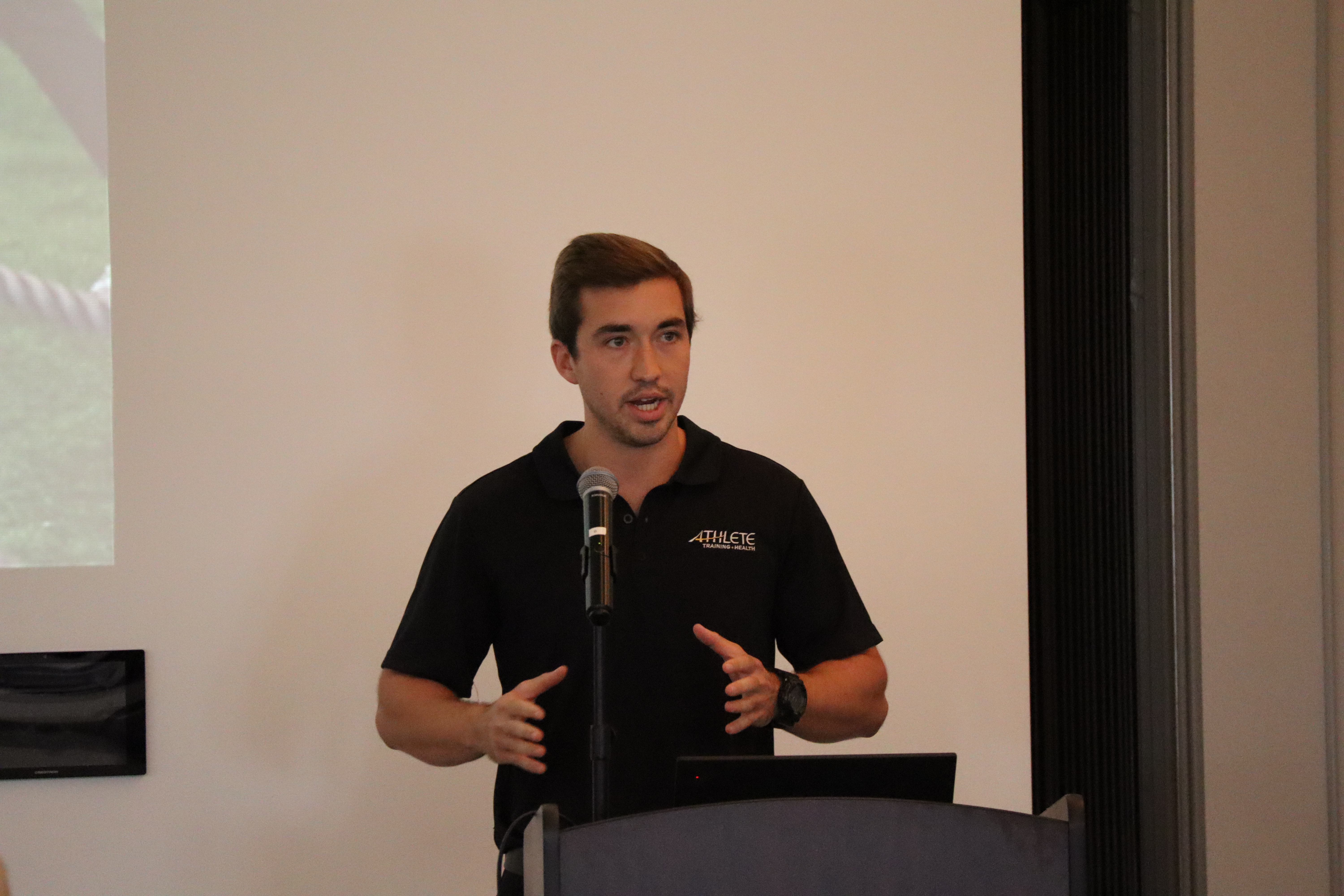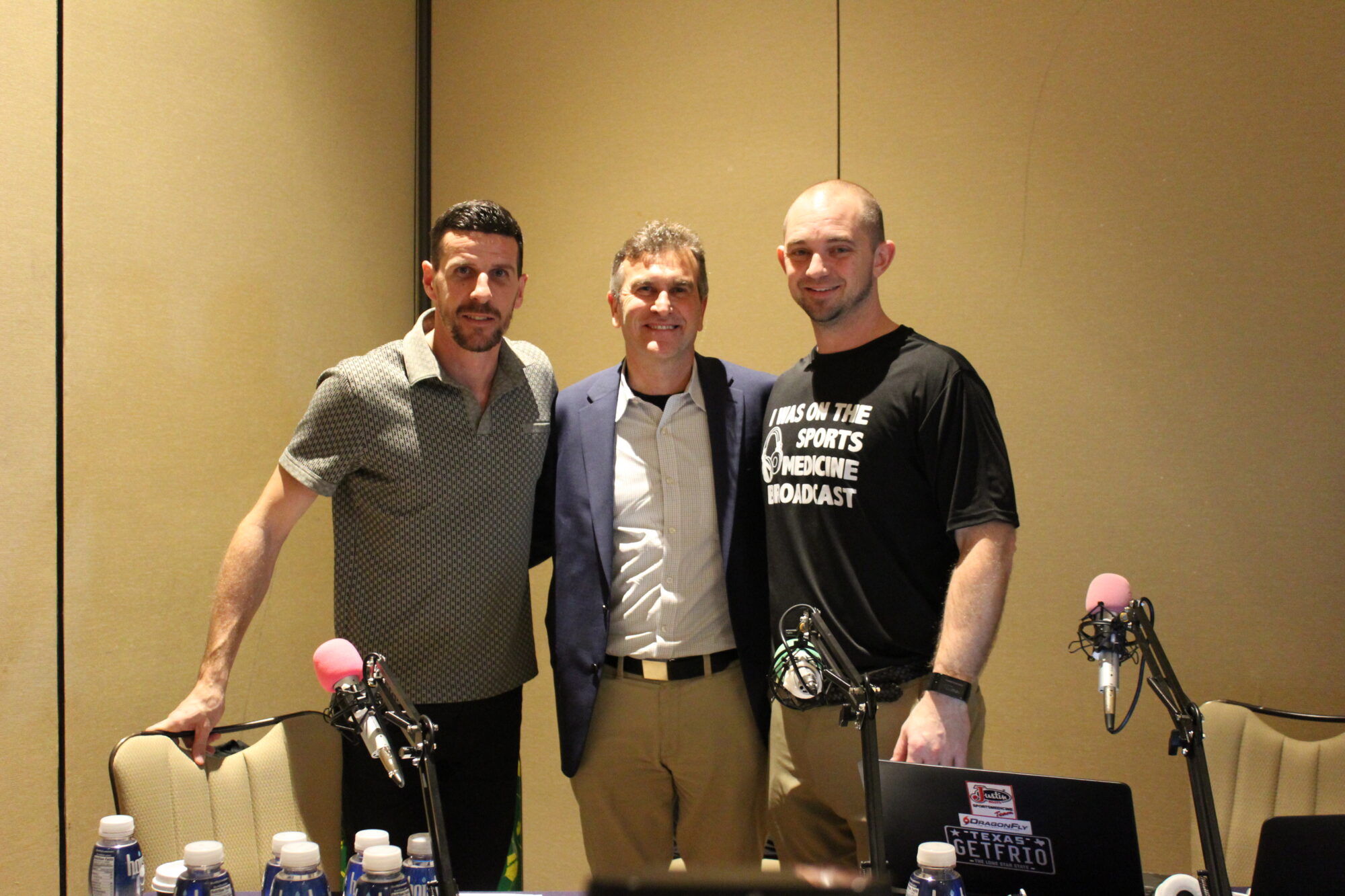Podcast: Play in new window | Download
Eccentric contractions have long been known to improve muscle hypertrophy. Ryan Collins joins Clayton Berrang to discuss Eccentrics vs Tempo training and how to implement both.

Where in the timeline are the athletes?
Once they can move without bracing
Strength Deficit Eccentric training benefits
Supermaximal load and trying to move that through the eccentric motion
A load that can not move through the concentric movement
How would you recommend emphasizing eccentric training?
Tempo training is a safe place to start but it affects the muscle adaptations
Most ATs and PTs are probably already doing this.
EX: single leg squat – box progression –
Reverse engineer sprinting
Brakes are going to be important to anything we move
But eccentric training offers so much more than just the brakes
Triphasic training
When do you transition from eccentric training?
Time of year and sports demands
Talk about the cycles for football
Summer is great for super maximal loads for the experienced lifters
Beginners lifted should be doing triphasic
The full stretch-shortening cycle would be in season
Tempo training is one of the easiest forms of progression for an athlete's body
Most adaptations from the eccentric load
Increased reps give some adaptations
Tempo is the lowest ROI
Box squats example
Tempo training and progress through the tempo training
4×5 with a 3 sec – 4-5 and up to 8-second tempo
Now we use slightly heavier weight with about a 2-second tempo
5 – 7 – 10 – 12 reps progression
Progress through load
4×5 and increase the load over the next 4 weeks
How do we set up a supermaximal eccentric?
Rack setup with safety catches and partners or team lift it back up
We are looking at 5/10% above our maximal level
We can do 5 sets of 1
Is there a tempo in this eccentric?
Move it as slowly as possible
The nordic hamstring curl is an example
“What works works”
If you move slowly you will move slow, move fast to move fast”
Late RTP 6 months out ACL?
Overload plays in
Their body is avoiding positions needed for power due to injury.
Post activation potentiation
Bands are a great tool
Apply them in multiple planes of motion.
You can pull them into an overloaded position
Forward-backward lunge with the band
Clayton Berrang – Email cberraang@athleteth.com
Contact Us:
Jeremy Jackson
Shawn Ready – shawnreadyatc@gmail.com
Dr. Mark Knoblauch – maknobla@Central.UH.EDU
Dr. Layci Harrison – lharris5@Central.UH.EDU
Bob Marley – Bob.Marley@uth.tmc.edu
ATCornerPodcast – ATCornerds@gmail.com
Joseph Eberhardt – eberhardtj@pearlandisd.org
Christina Fry – fryc@pearlandisd.org
These people LOVE Athletic Trainers and help support the podcast:
Frio Hydration – Superior Hydration products.
Donate and get some swag (like Patreon but for the school)
HOIST – No matter your reason for dehydration DRINK HOIST
MedBridge Education – Use “TheSMB” to save some, be entered in a drawing for a second year free, and support the podcast.
Marc Pro – Use “THESMB” to recover better.

